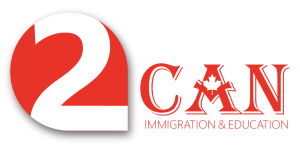* Course Overview
Post-graduate Human Resource Management
Postgraduate Diploma in Human Resource Management qualification is to provide learners with the skills and understanding in human resource management (HRM) that align with good strategic decision making to maintain organizations’ competitive advantage.
Learners acquire knowledge through an integrated approach of theory in human resource management and practice using real-time activities. Successful completion of this qualification will develop learner’s strategic human resource management and leadership skills and their ability to focus on the requirements of implementing an organization’s strategy.
The Postgraduate Diploma in Human Resource Management qualification enables learners to progress into or within employment and/or to work toward a relevant Master’s programme with advanced standing.
* Course Details
Duration : 8 months
Credits : 120 CR
Entry Requirements :
16 years of age
Bachelor Degree or Level 6 Diploma in Business Management
Delivery Method :
This unit deals with principles of research including the formulation of research questions, hypothesis and objectives. The unit will cover literature reviews, referencing, data collection using interviews and surveys, questionnaire design, statistical analysing using SPSS, qualitative data and methods for drawing conclusions from the analysed data.
Learning Outcomes
- Understand the identification and formulation of research problems;
- Understand how to review the literature on a research topic;
- Understand the design of business research methodologies; and
- Develop a research proposal.
The unit addresses how effective strategic management of human resources supports the achievement of organisational purposes in different organisational contexts. Consideration is given to the contribution of strategic human resource management to competitive advantage and organisational growth.
Learning Outcomes
- Understand the role of strategic management of human resources;
- Understand human resource planning in an organisation;
- Understand legal and ethical aspects of developing human resources policy; and
- Plan effective human resource strategies.
This unit explores people management and development and provides a basis from which learners can examine and critically evaluate the purpose and objectives of human resource management.
Learning Outcomes
- Understand the role of the Human Resource function in contemporary organizations;
- Understand the goals of Human Resource management; and
- Understand the correlation between organisational performance and management of Human Resources.
The purpose of this unit is to develop the leadership and management knowledge and skills of people in senior management roles. The unit reflects the nature of the roles and competences relevant at a strategic level.
Learning Outcomes
- Understand the concepts of leadership and management;
- Understand learning and development in leadership and management;
- Understand leadership and management development programmes; and
Understand approaches to support performance improvement.
The unit requires learners to examine contemporary influences on, and contexts of, human resource management and to consider their role in change management processes. The legal and regulatory frameworks which underpin these processes are considered and this unit will support learners to respond to change in the business environment.
Learning Outcomes
- Understand how contemporary issues impact organisations and the management of Human Resources;
- Understand the contribution of Human Resources to organisational strategy development;
- Understand legal and regulatory frameworks on Human Resource strategy and practice; and
- Know how to respond to changes in the business environment.
The unit focuses on the practical aspects of recruitment, selection, employee retention and dismissal, as well as on the strategic aspects of resourcing and talent management within the global context.
Learning Outcomes
- Understand concept of global talent management;
- Understand the challenges involved in global talent management; and
- Understand the relationship between global talent management and organisational strategy.
The unit considers the principles and practices of performance and rewards in corporate contexts. Learners will acquire both theoretical and practical understandings of the diverse approaches to reward management and be able to critically reflect on the strengths and limitations of these approaches.
Learning Outcomes
- Understand performance and reward management in organizations;
- Understand performance and reward management within the environment of the organisation; and
- Understand the design and implementation of performance and reward management systems.
This unit examines the key principles that underpin employment laws and their purpose, as well as major defences that employers are able to deploy when depending cases, and the potential organisational costs and reputational risks associated with losing them.
Learning Outcomes
- Understand key concepts in employment law in a country;
- Understand recruitment and selection legislation in a country;
- Understand aspects of employment protection given to different types of workforce.
FAIR USE STATEMENT
This page may contain copyrighted material the use of which has not always been specifically authorized by the copyright owner. We give most of the credit to the author of the quotes, photo, ect. We have gathered this information from various sites in search to advance the knowledge of the school history, education, geographical, ect. We would like to let everyone know that we have provided this information in good faith, however we make no representation or warranty of any kind, express or implied, regarding the accuracy, adequacy, validity, reliability, availability or completeness of any information on the site.
We would also like to warn people Under no circumstance we have any liability to you for any loss or damage of any kind incurred as a result of use of this site or reliance on any information. Your use of site and reliance on any information on the site is solely at your own risk.
Source:
